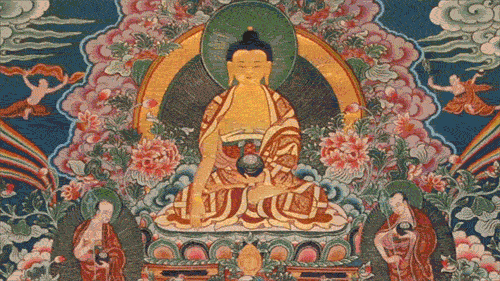Communal harmony despite the practice of different religions is the basic character of India down the ages. People of different religions have lived here harmoniously since long in the past. The democratic form of government achieved by the country after independence has given a great impetus to practising tolerance and exhibiting acceptance in every walk of life especially in matters of religion. The essential tenets of religious tolerance stems from the Vedic culture of many gods and many ways of expressing devotion, yet accepting all with open arms not having malice towards anybody. While Hinduism projects several gods and modes of worship to choose from, the people of this land have inherently been prepared to accept religious freedom and tolerance, which were very useful to interweave the several incoming religions with the national fabric without any difficulty.

Abode to all religions
India is a home to all the greatest religions of the world. For many centuries, India has endeavoured to provide a highly unique kind of highly constructive social and intellectual environment to permit the peaceful coexistence of several religions together. In fact, they had active interaction with each other exchanging and sharing ideologies, values and concepts. Thus, they had existed, thrived and grown together benefiting from each other. Inherently, Indian people have been trained in the belief that violence in no form is advocated or tolerated by any religion. For Indians, religion is a matter of personal choice whether it is practising any of the manifestations of the same religion or getting affiliated to a new faith altogether.
Hinduism
Hinduism also called as Sanatana Dharma is the most ancient religion that was practised in this land since times immemorial. The very name Sanatana Dharma suggests timelessness (Sanatana) and religion as a way of life (Dharma) for the people. Over a period, this faith grew diversely in three main streams namely the Vedic religion, the Dravidian religion and the tribal religion, of course with the same undercurrent manifested and expressed differently. In fact, the Vedic religion later acknowledged six prominent modes of worship that can be chosen by an individual as per his or her taste including Saivism, Vaishnavism, Ganapatyam, Kaumaram, Saktam and Sauram. Tus, the concept of plurality is verily in the religious tradition of India, which could easily accept the practice of other religions too. Called as the rebel children of Hinduism, the later developments included Jainism, Buddhism and Sikhism. Those that arrived from the Middle East and West include Islam and Christianity with all of them coexisting with equal status and opportunity.
How democracy helped
Despite the several glitches and evils expected of it, democracy has played a major role in the country to promote religious harmony. The largest democracy of the world has in fact practised this form of governance several times during the past under the rules by different crowns. This form of governance is best suited for the nature of the people in India. Over times, democracy has emerged as the solid force that has been able to sustain the solidarity of the nation. Some of the essential traits of the Indian tradition include assimilation, plurality, tolerance and perseverance combined with the strong intention of seeping the identity of the nation intact with its civilization thriving over the years.
The constitution of India has declared it as a secular nation. Indian constitution features a lot of provisions to safeguard the interests of the minority communities. There is absolutely no discrimination on the basis of a given religion in the country while the constitution assures equal opportunities for all. Though there had been instances of communal disturbances from time to time, the government has been taking a lot of preventive as well as highly positive measures to curb them in the very beginning. The steps to ensure communal harmony through a comprehensive approach include working in the sectors of statutory, legal, administrative, and economics. Though promoting and sustaining communal harmony is indeed a very big challenge for such a vast democracy like India amidst the plurality of religions, it is indeed a mission verily possible given the rich culture that accommodates differences in thoughts, philosophies and ways of life.
Congratulations @aarkay! You have completed some achievement on Steemit and have been rewarded with new badge(s) :
Click on any badge to view your own Board of Honnor on SteemitBoard.
For more information about SteemitBoard, click here
If you no longer want to receive notifications, reply to this comment with the word
STOPIf you want to support the SteemitBoard project, your upvote for this notification is welcome!
Downvoting a post can decrease pending rewards and make it less visible. Common reasons:
Submit